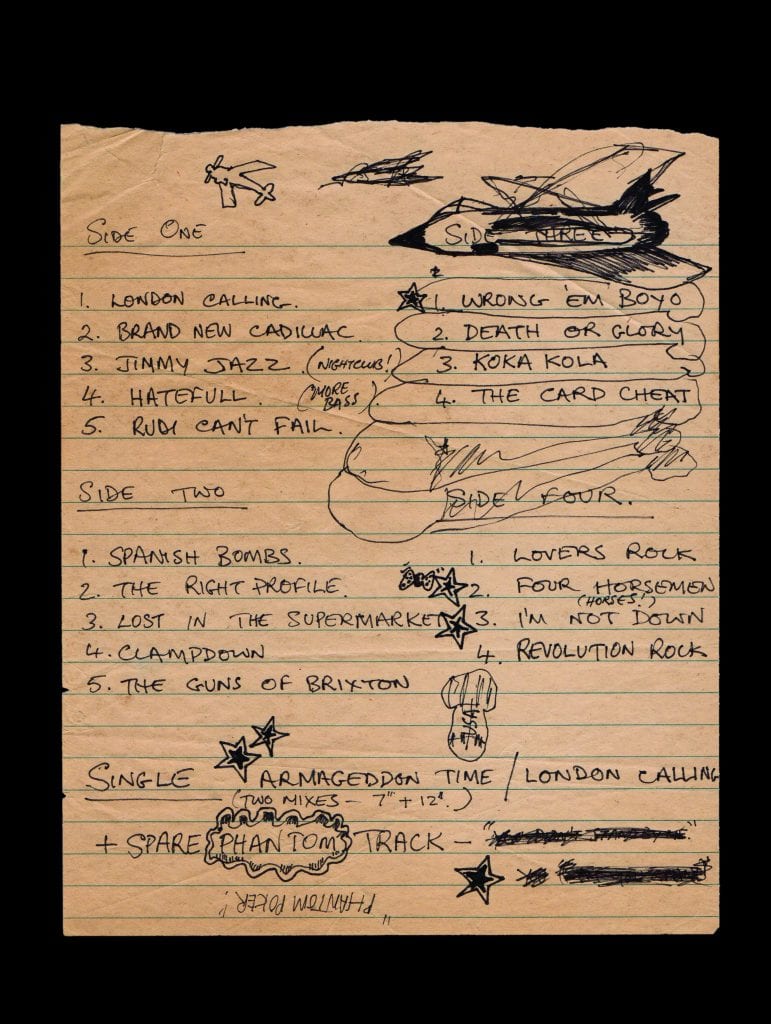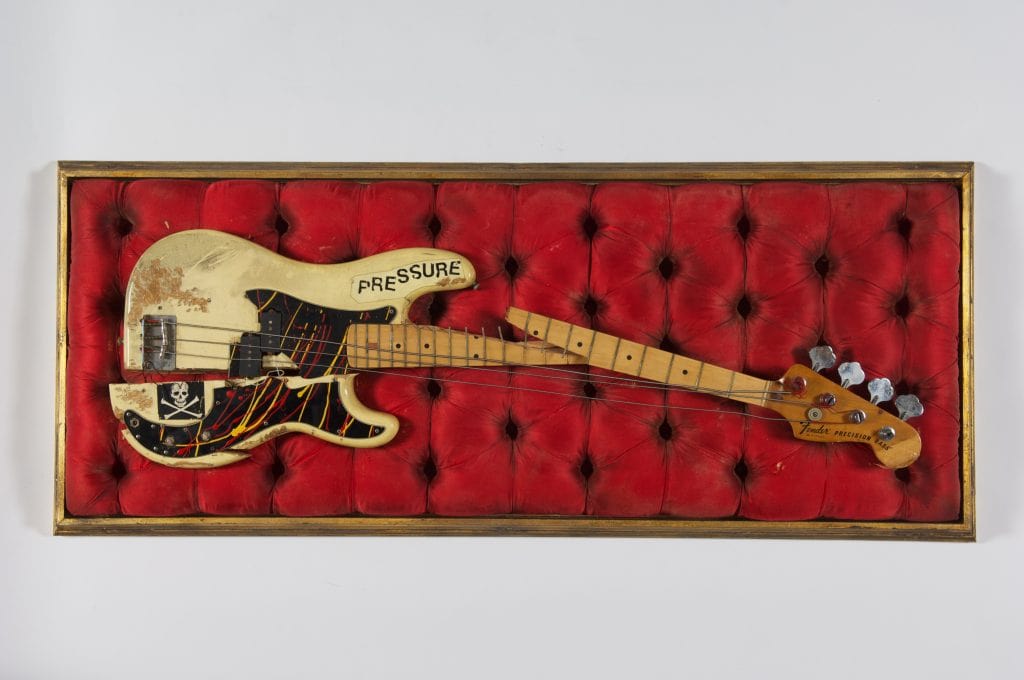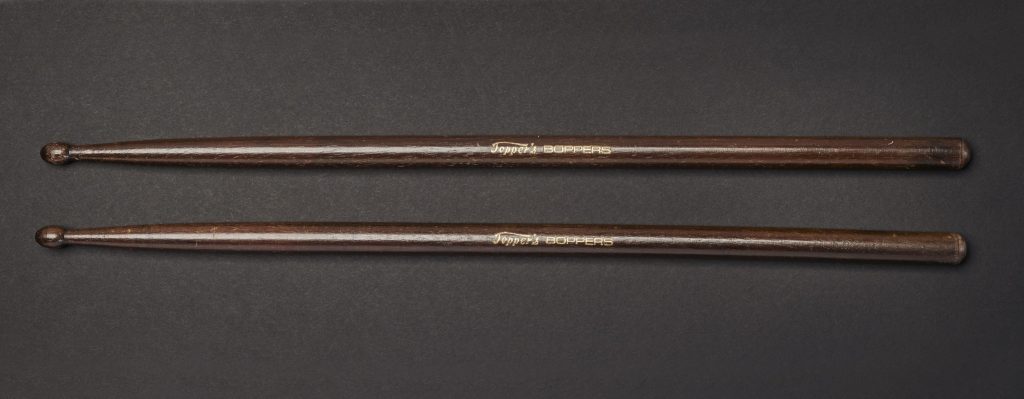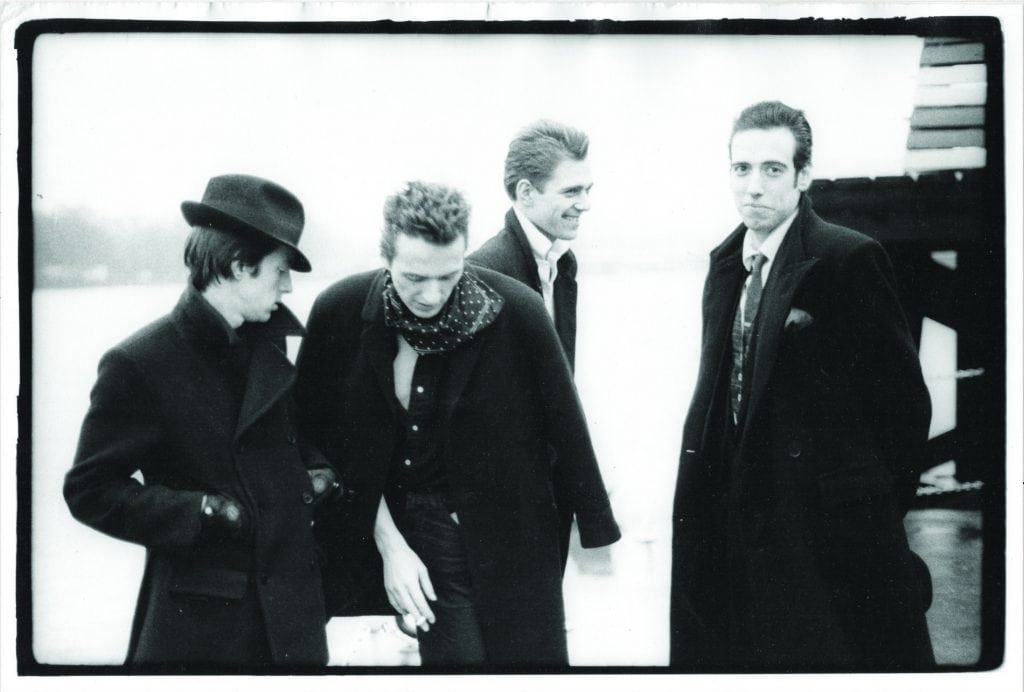You don’t need to be an expert on music to know The Clash’s third album ‘London Calling’ is one of rock’s finest records. The album, which was released on December 14, 1979, is a punk album at heart, but with a pioneering blend of other genres like ska, reggae and jazz.
The seminal release that celebrates its 40th anniversary next month, is the inspiration behind a new show, fittingly hosted at the Museum of London. The free exhibition will showcase a collection of more than 100 personal items from The Clash’s personal archive, including instruments played by the band, images, handwritten notes any more, many of them previously unseen.
With the fierce political anger that drove it, London Calling’s songs remain as relevant today as they ever were. Songs themed around social displacement, unemployment, racial conflict and other pertinent issues of the times still resonate deeply.
As well as showcasing influences and context for the writing and recording of the era-defining double album, this exclusive exhibit at the Museum of London will also examine how the capital influenced The Clash as they became the most popular British band of the 20th century.
Some of the items on show include:
• A handwritten album sequence note by Mick Jones showing the final and correct order for the four sides of the double album ‘London Calling’

• One of Joe Strummer’s notebooks from 1979, the period when the album ‘London Calling’ was rehearsed and recorded. Open at page showing Ice Age, which was to become lyrics for the song ‘London Calling’
• Paul Simonon’s broken Fender Precision Bass. The bass was damaged on stage at The Palladium in New York City on 21st September 1979, as Simonon smashed it on the floor in an act of spontaneous and complete frustration

• Joe Strummer’s typewriter used to document ideas, lyrics and other writings
• Topper Headon’s drum sticks, which are the only remaining items of Headon’s from this time

To coincide with the opening of the exhibit, on 15th November, Sony are releasing the London Calling Scrapbook – a 120-page hardback companion that comes with the album on cd and contains hand-written lyrics, notes, photos and previously unseen material from the period when the record was made.

Beatrice Behlen, Senior Curator of Fashion and Decorative Arts at the Museum of London, said of the show:
“’London Calling’ is The Clash’s defining album, a rallying call for Londoners and people around the world. The album’s lyrics reflected contemporary concerns, many of which are still relevant today, as it moved away from traditional punk by adopting and reworking much wider musical influences.
At the Museum of London, we tell the stories of our capital through the objects and memories of the people who have lived here. This display will provide a brand new, exciting and vibrant take on this, showcasing rarely seen personal objects and telling the incredible story of how ‘London Calling’ was, and for many still is, the sound of a generation.”
The Clash: London Calling at Museum of London runs from 15 November 2019 – 19 April 2020.
Click the banner to share on Facebook



